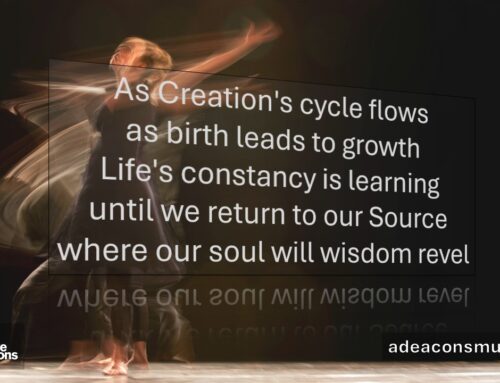I was recently reading an interview with Douglas Todd in the United Church Observer, which is now Broadview magazine. Todd is the religion reporter for the Vancouver Sun and some of what he had to say articulated well something that has been stewing for me as well:
Q To me, the point of church is that it offers connection with God. You’d think the superficial judgments some people make about the church would be overridden by the stronger desire to have that fundamental hunger met. What’s happened?
A I think people are afraid. You might learn some things about yourself that aren’t super pleasant at church, like maybe you’re imperfect and you’re not that open to things that are real. It’s so easy to be distracted by popular culture and your worries. So I actually find an almost bloody-minded kind of denial in people. They don’t want to know there’s an option.
And further on, he adds:
I’m not totally against simple faith, but I think this God stuff is quite complicated intellectually.
As I have been considering this interview, I was wrestling with my daily UCiM-ism and this was the result:
I was recently invited by some of the Young Adults at UCiM to consider offering a faith exploration opportunity during the summer. Now I’m a busy guy … my hours drop to halftime in the summer owing to the nature of my role in the faith-community and here comes people asking to learn, dig deep and explore their faith. I was not only blown away, I was … well … excited! What was and is exciting is that there is clearly a desire to dig into faith in a way that looks earnestly at a relationship with God, while not falling into the intellectual trap of literalism.
Biblical literacy – it’s lacking folks. Too often this literacy is equated with having to take the Sacred Texts as literally true, as opposed to engaging with them intentionally – seriously. How you hear these words gets to the heart – I think – of Todd’s challenge. For those not engaged in their faith, perhaps for whom the ritual of attendance is more important than the substance of the worship experience or those who have already painted all Christian communities as homophobic, gender-insensitive, judgemental and all around the last place you might actually find love, I’m likely heard as, well, reinforcing the stereotype. If I do not have a relationship with you, then you are going to have to fit me into your story somehow. Christianity has been taking a beating lately, especially for those – for lack of better language – who consider themselves egalitarian, progressive or liberal in respect to our relationship with Jesus.
Now, if I have a relationship with you or you are willing to extend me some trust, what I am trying to say is that without biblical literacy any sense of depth to faith becomes saccharine, watered-down, wishy-washy, happy feel good, cloud in the sky stuff. Jesus with the lollipop or Mary who just wants to hug everyone – imagine the Care Bears and that’s the place we end up. Without a grounding in the paradox, the contradictions, the out-right xenophobia and horrors that make up some of our Sacred Scripture, we have no capacity to offer an alternative voice in our sound-byte crazy, 35 second attention span Google-verse. And, if we do not do that work, follow that path of Discipleship, we get lost. When we finally need someone with whom to go deep, when the proverbial fan gets hit with the reality of the human condition, a Christian community is not going to be where you look for solace …
The rant isn’t that the negative stereotypes about Christian communities are actually wrong – in many (too many) ways they are, most unfortunately, right-on-the-mark. But if those who take this task seriously do not reflect back to those in our own contexts – faith communities, families, outreach ministries, friends – that we need to tread the path of knowing, exploring where we have been, then we simply lack credibility. This work allows us to claim the Christian language as one way through which someone can discuss the Divine. This stuff – life, the journey of knowing, of meeting the Holy in your neighbour – takes work.
If you want some tools and skills to articulate God in a world that hates analysis, critique or reflection, then demand it of those whom you respect. Ask for opportunities to explore your faith. And if you’re in a place, community, context of leadership in which apathy might be present, demand it as well. Discipleship is not a get-out-of-jail free card. It’s a path that leads to awakening, richness, and joy. This path hurts, you get banged up, confront control issues all the time – usually your own – but the other side of it is a discovery of humility. Of being present to the brokenness within and all around and, at the end of days, the possibility to say, ‘that’s okay. Life is a gift and I, for one, have enjoyed every moment of it.’
So … can you hear me now? Does this sound like an invitation or a burden? And, if you’re still reading, maybe – at the very least – you’ll hear it as an honest challenge … choice is yours after all …







Your reflections are most welcome!